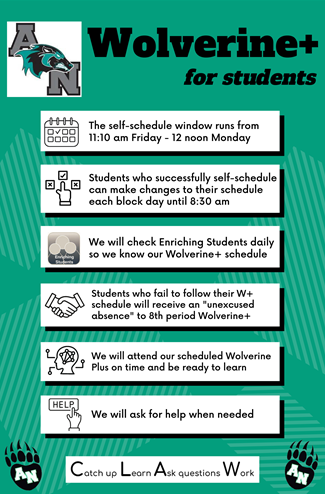A topic that often gains many strong opinions and emotions is the concept of school spirit; some may dismiss it as a cliché, while others view it as an important part of the high school experience. The question remains: Is school spirit cool? We gathered students’ and educators’ insights on this matter.
Mrs. Holloway, an educator at ANHS, describes her beliefs on the matter. Mrs. Holloway expressed her enthusiastic support for school spirit. She says, “Heck ya I do! It’s cool because it strengthens the community, you’re not only doing it to be cool. I think community is cool and it’s a great way to come together.”
Ms. Lieger, one of the guidance counselors at ANHS, also gave her insight on the question of whether school spirit is cool or not.
Ms. Lieger says, “I love school spirit because it shows a strong sense of belonging to the school and being excited to be a high school student.”
School spirit is the enthusiasm, loyalty and pride that students, staff and alumni have for their school. This passion often manifests itself through various activities such as attending sporting events, cheering on their teams and participating in school traditions. But is it genuinely cool?
The concept of school spirit has been a topic of debate among students and educators for years. Some argue that it can be superficial and that students only participate to fit in or be seen as “cool.”
Koosha Kalantar (10) says, “I believe student spirit can help hype people up for upcoming events, and it can be fun in general. The main factor is participation. The more people participate in school dress up days and such, the more normal it becomes, which in turn gets people to be more active in school events and even just spirit weeks.”
School spirit is undeniably cool, not because it conforms to popular trends, but because it serves a crucial role in strengthening the sense of community. The power of school spirit lies in its ability to bring people together, fostering a bond that goes beyond the walls of the classroom. It unites students from different backgrounds, interests and talents under a common banner.
By attending school events and participating in spirited activities, students build connections and friendships that will last a lifetime. This camaraderie is important in creating a supportive and inclusive environment where everyone feels valued and appreciated. This sense of belonging is an important part of high school life.
School spirit provides an opportunity for students to take pride in their school’s achievements, whether it’s academic excellence, athletic success, or artistic accomplishments. Celebrating these achievements with enthusiasm can be a motivating force, encouraging students to excel in their own endeavors.
School spirit can also play a crucial role in the emotional well-being of students. It helps combat feelings of isolation and loneliness by providing a sense of connection and shared identity. In a time when mental health and social well-being are paramount, school spirit offers a therapeutic outlet for students to express their emotions positively.
Critics argue that excessive focus on school spirit may lead to the exclusion of students who do not participate or feel less enthusiastic about such activities. In some cases, there may be pressure to conform, which can create stress and anxiety. It’s important to strike a balance between promoting school spirit and respecting the diverse interests and preferences of all students.
The question of whether school spirit is cool is one that generates varying opinions. As we have seen from the insights of educators as well as students, school spirit is cool not because it adheres to fleeting trends, but because it strengthens the community, fosters a sense of belonging and brings students and staff together.
However, it’s essential to strike a balance that ensures inclusivity and respect for individual choices. School spirit, when approached with the right mindset, can enhance the high school experience and leave a long lasting, positive impact on students’ lives.







